These days, our culture has become more and more disposable. Broken coffee pot? Throw it away and get a new one. TV not working, throw it away and get a new one. Computer on the fritz? It’s time to upgrade anyway.
One of the biggest lessons we learned when we initially started cruising is that other countries tend to fix broken things. Another lesson was that finding “stuff” is not necessarily where we logically would expect it.
But first, relax., don’t get upset. There will be a solution. Think of it as a puzzle and you have to put together the pieces! Here are some tips on getting things fixed or finding parts in other cruising locales!
1. Be Flexible. We are not necessarily the “fix-it” type people, at least we didn’t start out that way. We were hesitant to take anything apart to try and fix it. One of our biggest shocks arriving in Isla Mujeres and having our brand new windlass refuse to go UP was “What do you MEAN, I can’t just CALL someone to come fix this?”!!! We quickly learned to be more flexible. There are lots of ways to get broken things fixed. And often the final solution won’t be obvious until you’ve done a lot of preliminary research.

2. Machine Shops Can Be Your Best Friend! In general there seem to be more machine shops in cruising land than in the U.S. Maybe that’s just because here when something doesn’t work we tend to replace the entire item, or just get it “rebuilt” as in the case of our salt water pump last year.

But last week when two of the screws holding the impeller plate on sheared off, likely from metal fatigue, David was able to get one out with vice grips because it sheered off with just enough showing to twist it out. The other was hopeless. We called our mechanic who never returned the call – mechanics are so busy that they don’t want to bother with diesels that are running well. 🙁 Then we inquired about a machine shop. I guess a machine shop makes things that aren’t built in sufficient quantity to justify a factory production line. I really never thought about it until we needed a part fabricated for our new autopilot in Colon Panama. Here in SW FL it takes more than one inquiry to find someone who actually knows about a local machine shop, but we finally found one. Hopping in the car, we wound our way around streets we’d never seen before and found it. The nicest man in the world (seems he caught on to the fact that we can’t leave the dock until these two little screws are fixed) removed the screw and charged us a whopping $15. Ranks right up there with the inexpensive throttle fix we did last spring as the least expensive diesel engine fix in history!

3. Take the broken part with you. Even if you can’t speak one word of the language (although I’d recommend you try), you can often get things fixed just by taking the broken part with you. When our propane hose broke in La Ceiba, Honduras and I was off on a business trip back to New York, David (who doesn’t speak Spanish) was able to get a new hose and fitting fabricated at a little “managuas” shop by asking at the marina where to go and then taking the broken parts with him. He actually got one more and a spare just in case. Luckily we’ve never used the spare, but it’s there just in case!
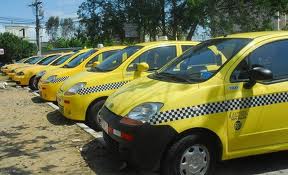
4. Taxi Drivers In Foreign Lands. When in a foreign country, a taxi driver can also be your best ally. We’ve had many situations where we were looking for something specific where a taxi driver went above and beyond the call of duty suggesting places to try, then coming in with us and figuring out where to go next if that place couldn’t solve the problem. One of the primary examples was trying to replace our old burned up alternator in Panama City, Panama. First we tried in Colon. But our alternator had an external regulator and all the new ones had internal regulators. So the Colon shopkeepers recommended we take it to Panama City, 30 miles and a lifetime away due to bad roads. So we take the marina bus on the next trip to Panama City, carting our old alternator. Finally 3 hours and dozens of alternator shops later, we decided there wasn’t anything to be had and we caught the bus back to the marina in frustration. The next day, back to Colon, we got a fabulous taxi driver who looked at our alternator and started off for a back alley in a pretty scary looking neighborhood (Colon is not a place to be trifled with when it comes to safety). Sure enough, this taxi driver took us right to a guy who knew all about our alternator and rebuilt it for us for practically nothing! Sometimes it’s all in the luck of getting the right taxi driver!
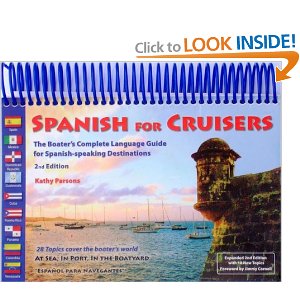
5. Take some type of language translator – they come in almost credit card sizes these days – and you can type in whatever word you need, hit translate and show it to a taxi driver or a shopkeeper even if you can’t pronounce it. Another great alternative is to take Kathy Parson’s “Spanish for Cruisers” book with you – then you can just point at a picture of what it is you need.


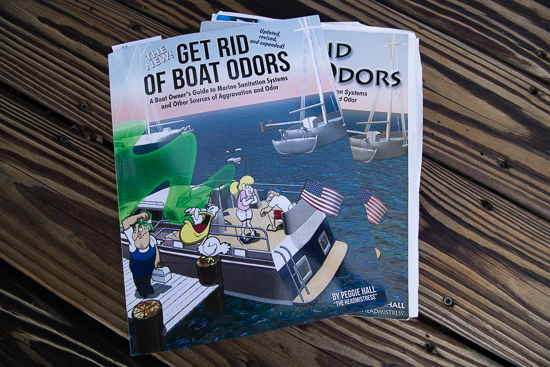
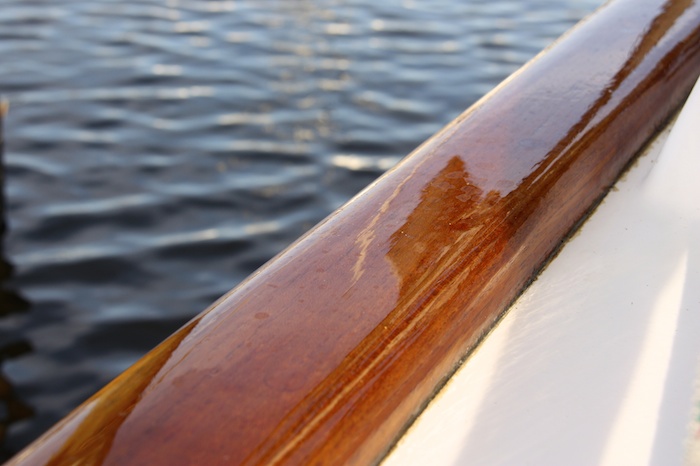







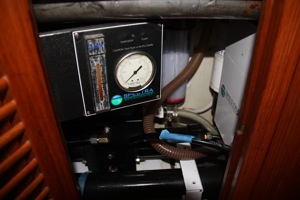
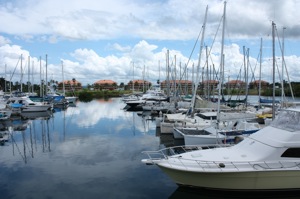

Best of all, when you get the parts or repair completed, particularly when you’re in a country where you’re less than perfectly fluent, the feeling of accomplishment is incredible! Ditto for doing something for the first time.
One of my proudest moments was wiring in a new charge controller (not identical to the one we removed) — having it work and charge the batteries correctly convinced me we could repair ANYTHING on that boat if we had to!
-C